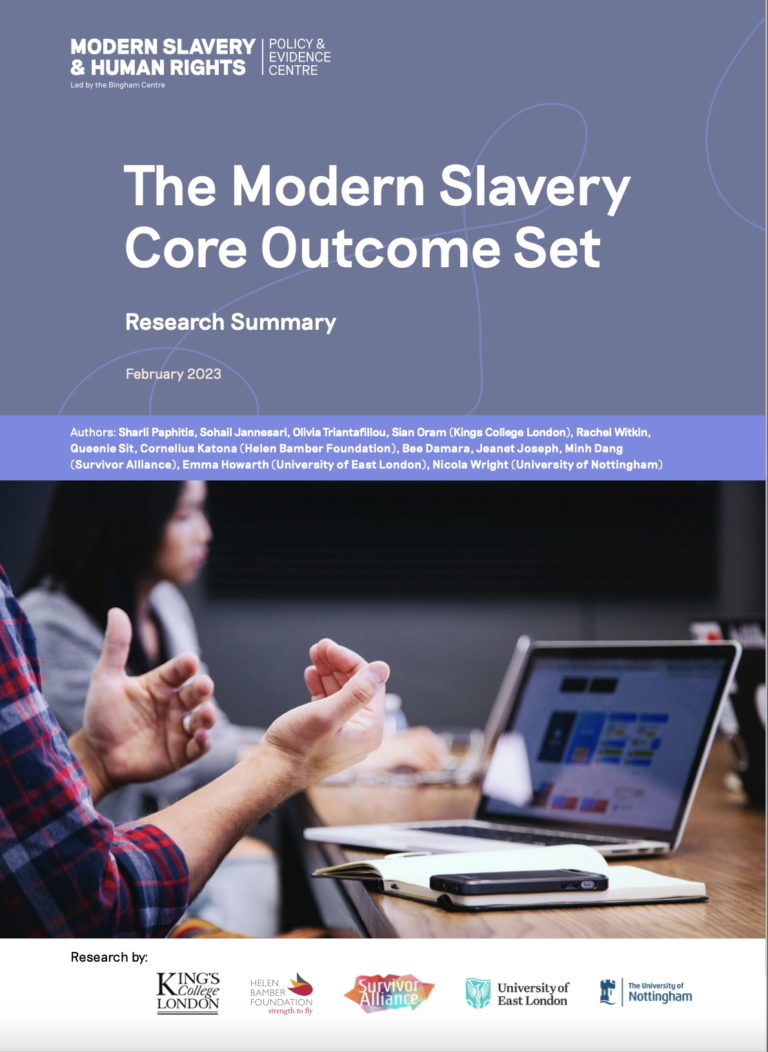This is a summary of the report: The Modern Slavery Core
Outcome Set , a research project funded by the Modern Slavery and Human Rights Policy and Evidence Centre (Modern Slavery PEC), which is funded by the UK Arts and Humanities Research Council. The research was conducted by Sharli Paphitis, Sohail Jannesari, Olivia Triantafillou, Sian Oram (Kings College London), Rachel Witkin, Queenie Sit (Helen Bamber Foundation), Bee Damara, Jeanet Joseph, Minh Dang, Cornelius Katona (Survivor Alliance), Emma Howarth (University of East London), Nicola Wright (University of Nottingham).
We are grateful to all the people who felt comfortable to contribute new ideas and share so openly with us.
The full report can be accessed on the Modern Slavery PEC website at modernslaverypec.org/resources/core-outcome-set and on the MSCOS website at mscos.co.uk.
The project has also developed a Community of Practice, to make sure that the outcome set is embedded in practice. To join it, please visit mscos.co.uk.
The Modern Slavery PEC has supported this independent research project and worked closely with the research team to produce this Research Summary. However, the views expressed in this summary and the full report are those of the authors and not necessarily of the Modern Slavery PEC.
This project was funded through a Modern Slavery PEC
open call for proposals to examine support and recovery of survivors of modern slavery in the UK and is one of five projects commissioned through this portfolio.

